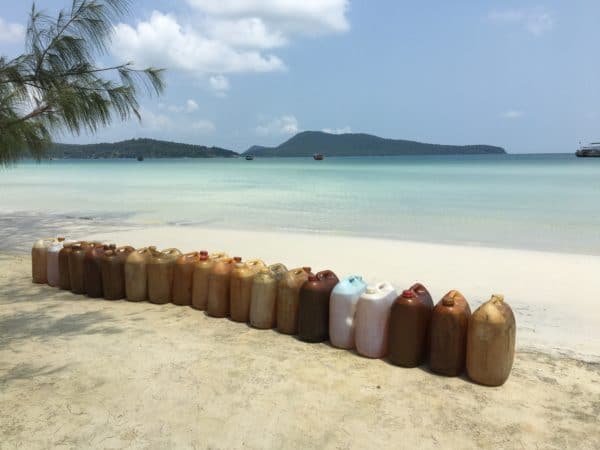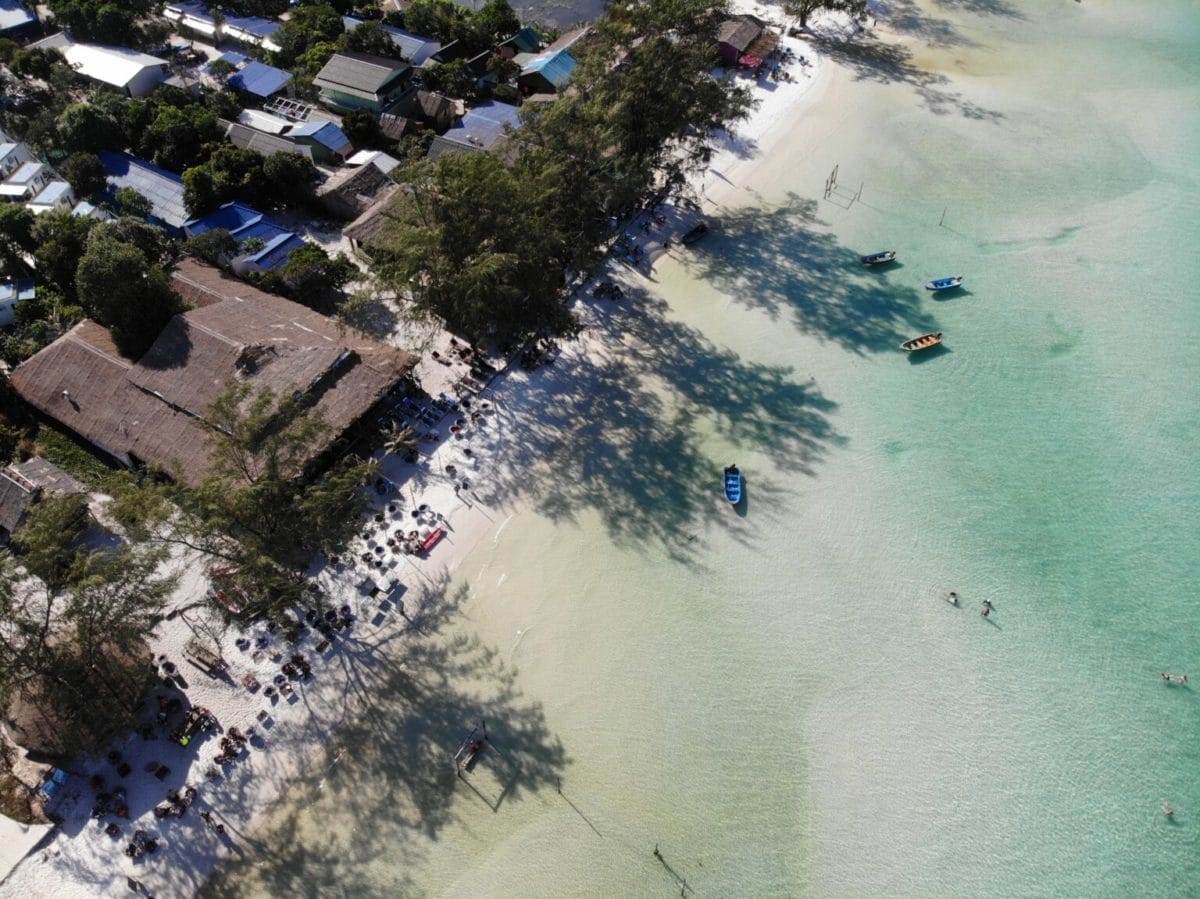In these pandemic times most would-be travellers can only dream of escape to sun-drenched island retreats; in the meantime, some of those islands, such as Cambodia’s Koh Rong Samloem, are channeling the sun to future-proof their energy supply and help keep climate change at bay.
This year Canopy Power, operating as engineering, procurement and construction partner to Total Solar Distributed Generation, will construct a new solar-based power plant on Koh Rong Samloem, which lies just off the coast of Sihanoukville, and where some 60 hotels, resorts and guest houses currently each rely on their own diesel generators.
The plant will be owned and operated by Total Solar DG, a subsidiary of French energy giant Total, and provide renewably generated electricity to a licensed local electricity retailer.
Designed as two microgrids incorporating 1.25 MWp of ground-mounted solar, and 2 MWh of battery storage integrated with diesel generators and smart controllers, the project will provide more than 50% of the island’s needs from renewable energy, displacing around 600,000 litres of diesel per annum.

Image: Canopy Power
“Converting an entire island from diesel to solar-battery power in what is the largest project of its kind, is a milestone in our regional portfolio of over 600 MW of projects in operation and development,” said Gavin Adda, CEO of Total Solar DG, when the project was announced in November 2020.
After minor delays, work on electrification of Koh Rong Samloem began in late 2020 and completion is expected in the second quarter of 2021.
The island’s population of around 300 sustains itself with fishing, tourism and small-scale crop cultivation, and is largely concentrated in the two villages of M’Pai Bay in the north and Koh Rong Sanloem Phumi Kang Khnong in the south.
The villages will now be connected by a new medium-voltage distribution system constructed as part of the project.
Tourist reviews of the island cite its natural beauty, fantastic snorkelling, jungle walks to historic sites and unreliable, in some areas non-existent, power supply.
The Canopy Power-Total Generation DG project will deliver 24-hour electricity security, and substantially reduce noise and air pollution caused by diesel generators.
The Koh Rong Samloem electrification project, says Adda, “is an example of remote locations leveraging renewables to improve access to power and also cut costs”.
Oh islands in the sun …
While Total Solar DG sees the opportunity to decarbonise and ensure the electricity supply of “tens of thousands of islands” in Southeast Asia, says Adda, other innovators, such as Australia’s BlueVolt are similarly working to free the Pacific Islands from the tyranny of reliance on diesel generation.
The Savo Solar Initiative, funded by the Honnold Foundation, is trialling a solar-plus-battery system designed by BlueVolt, at Sunset Lodge on the isle of Savo in the Solomon Islands, with the dual aims of enabling the island to become self sufficient in managing its natural energy resource, and provide the reliability of power that will allow islanders to build a tourism industry based around a sustainable, clean, quiet electricity supply.
Although some renewable-energy projects on remote islands have slowed or stalled during 2020 in the interests of keeping populations isolated from the Covid-19 pandemic, Sujay Malve, founder and CEO of Canopy Power says the renewable industry is “experiencing a surge in awareness within individuals and corporations towards sustainability”.
He says Canopy Power’s focus in 2021 will be “on expanding our geographical reach and providing novel technical and financial solutions to increase the uptake of renewable energy microgrids in Southeast Asia”.
If such ambitions can be accelerated, future travellers are likely to encounter improved living standards among island communities, and a more tranquil environment consistent with their dreams of an island holiday.
This content is protected by copyright and may not be reused. If you want to cooperate with us and would like to reuse some of our content, please contact: editors@pv-magazine.com.









By submitting this form you agree to pv magazine using your data for the purposes of publishing your comment.
Your personal data will only be disclosed or otherwise transmitted to third parties for the purposes of spam filtering or if this is necessary for technical maintenance of the website. Any other transfer to third parties will not take place unless this is justified on the basis of applicable data protection regulations or if pv magazine is legally obliged to do so.
You may revoke this consent at any time with effect for the future, in which case your personal data will be deleted immediately. Otherwise, your data will be deleted if pv magazine has processed your request or the purpose of data storage is fulfilled.
Further information on data privacy can be found in our Data Protection Policy.